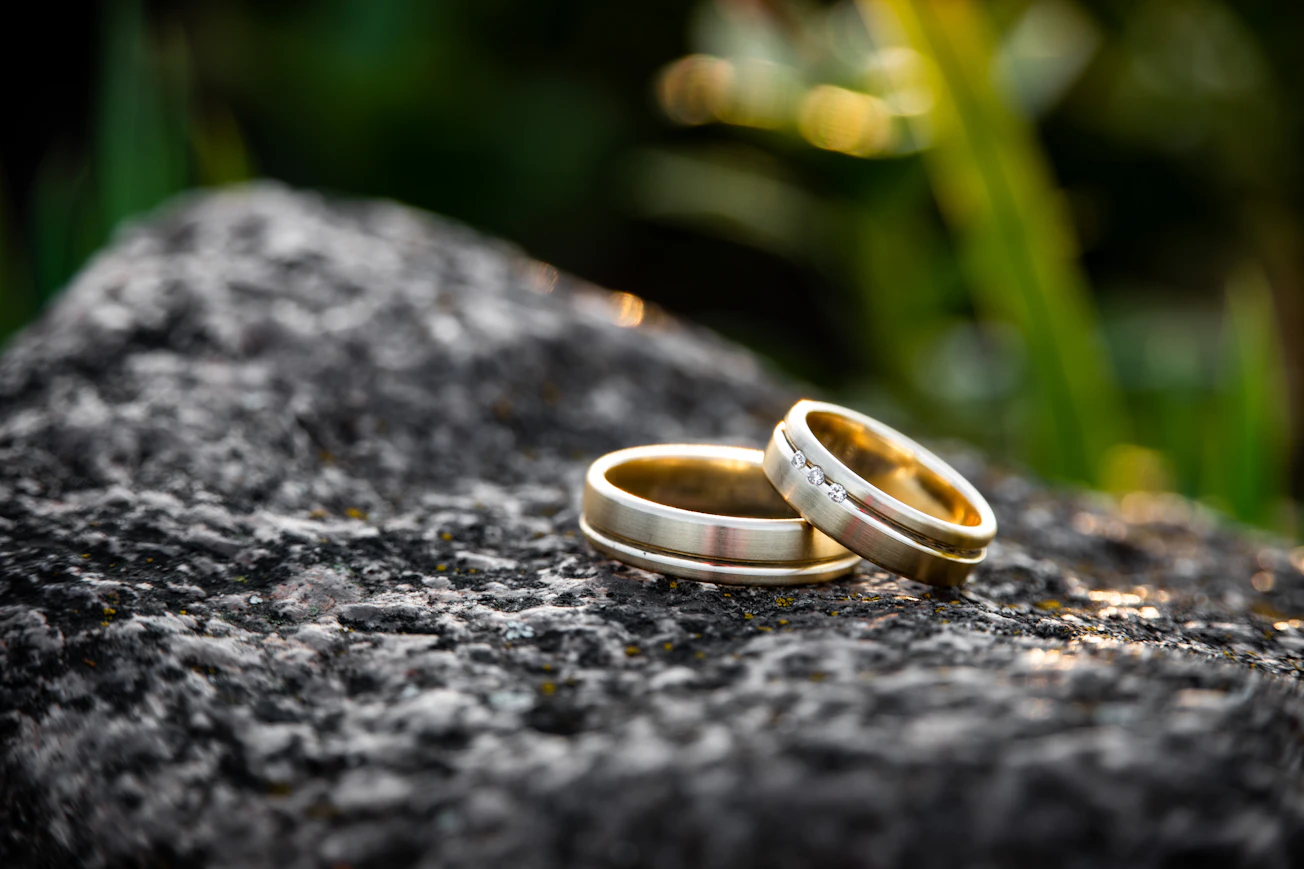I expected ample flora and fauna photo ops on our road trip to Alaska – and lots of knock-your-socks-off mountain scenery, to boot.
I didn’t figure on photographing a marriage proposal.
I was loaded for bear – caribou, moose, buffalo, and mountain goat too, when we set off for a hike in Denali National Park and Preserve. I’d slung “Big Bertha,” my trusty Nikon camera fitted with a 200-500 millimeter zoom lens, over my shoulder. (Okay, I’m a retired history prof who is still into military history. “Big Bertha” was a World War I German siege howitzer.)
We first met the twenty-something couple at the edge of the rain-swollen Nenana River. They were finishing up peanut-butter-and-jelly sandwiches. We commiserated with each other about the pesky mosquitoes. “Alaska’s state bird,” I joked.
They offered to loan us their insect repellent. Packing Deet (and bear spray), we thanked them and declined.
We ran into them again where the path looped around emerald-green, pine-tree-rimmed Horseshoe Lake. Perhaps guessing that Bertha meant I was fairly competent with a camera, one of them handed me an iPhone. “Do you mind taking our picture?”
I was glad to oblige.
Snap.
“These are great,” they chorused. “Can you take some more?”
Melinda handed me her more up-to-date iPhone for round two.
This time, the couple more than mugged for the camera. They turned and faced each other, smiling and holding hands. They looked lovingly at each other and kissed.
Snap. Snap.
One took a knee and fished a little black box from a pocket.
Snap. Snap. Snap.
Out came an engagement ring, followed by a proposal.
Snap. Snap. Snap. Snap.
Proposal and ring accepted. Hugs and kisses.
Snap. Snap. Snap. Snap. Snap.
Wedded for 43 years, Melinda and I teared up. Who wouldn’t have? Sadly, a lot of our fellow Kentuckians.
At best, they’d have frowned, harrumphed and stormed off. At worst, they’d have berated the couple – maybe even told them that they were going to hell.
That’s because the newly betrothed were two women – Sarah Smith (proposer) and Desireé Gilbert (proposal accepter). They’re high school teachers from the Indianapolis area.
“When we heard your accents, we weren’t sure you’d be okay with this,” Smith said with a smile. Gilbert grinned, too.
“Stereotyping old white people because they sound like they might be from Kentucky, huh?” I laughed.
All four of us laughed. Unbeknownst to Melinda and me, a middle-aged couple had been watching from behind us. They joined us in offering best wishes to the happy Hoosiers. “You’re beautiful,” the woman said.
We and the newly-betrothed parted company with hugs and email exchanges.
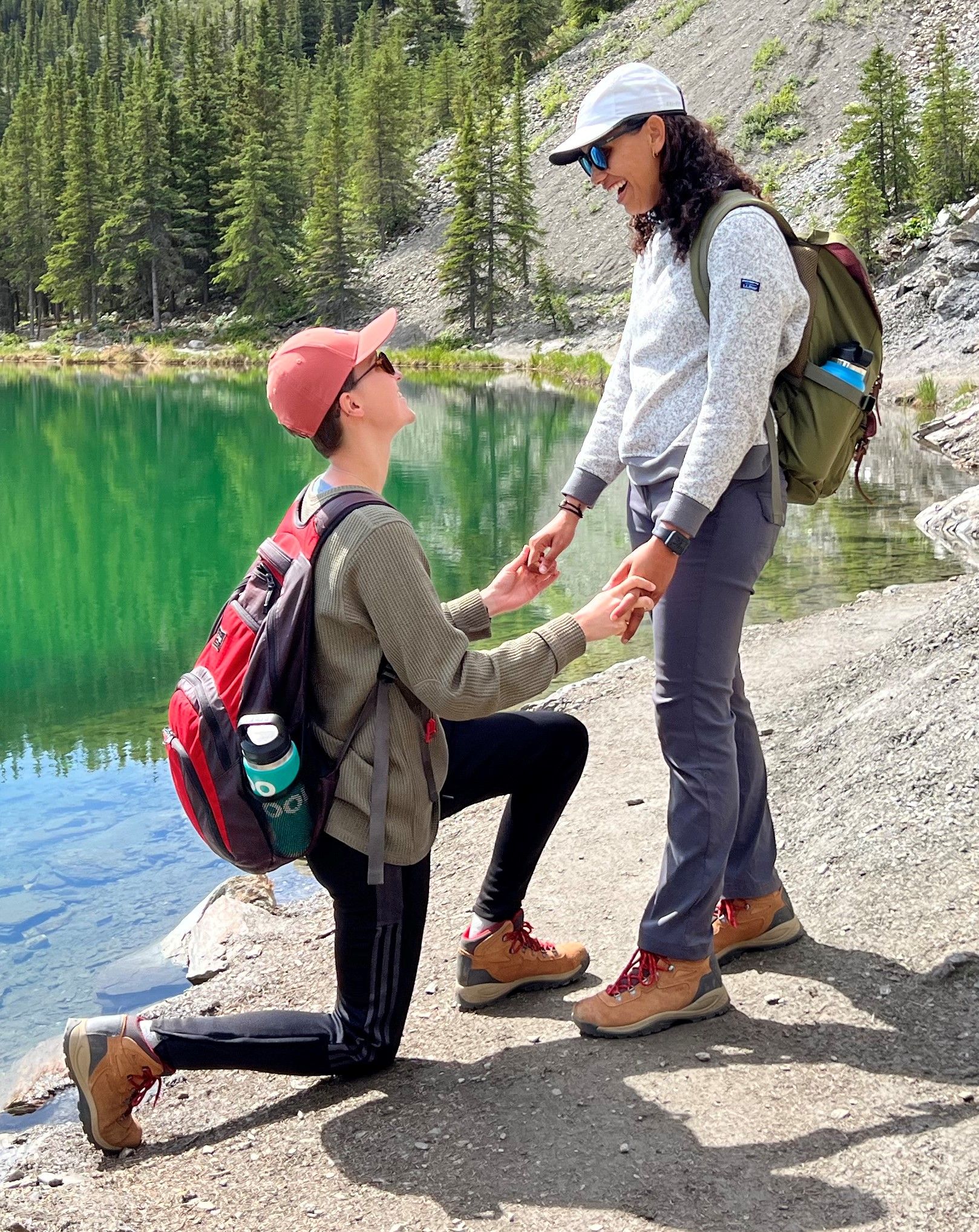
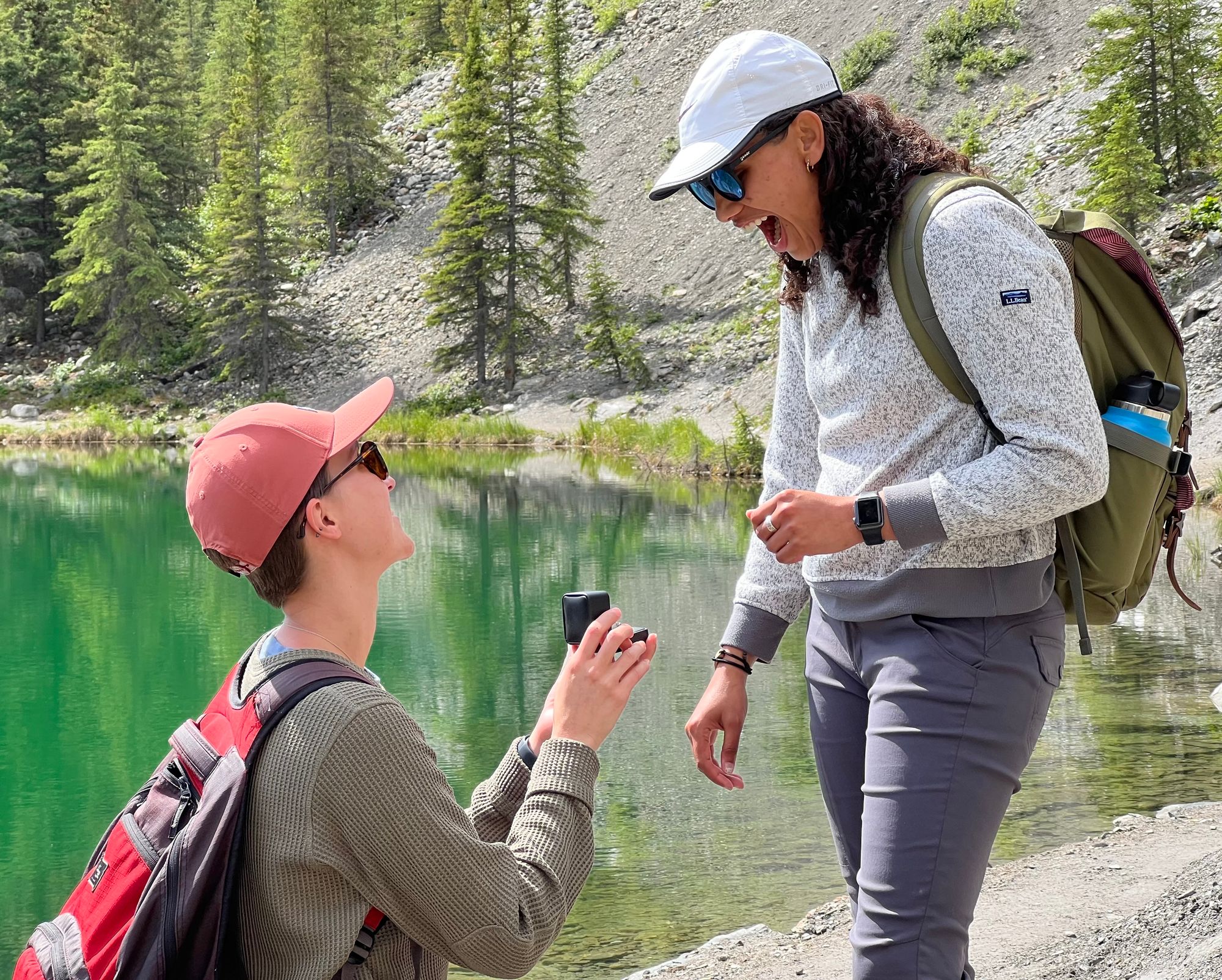
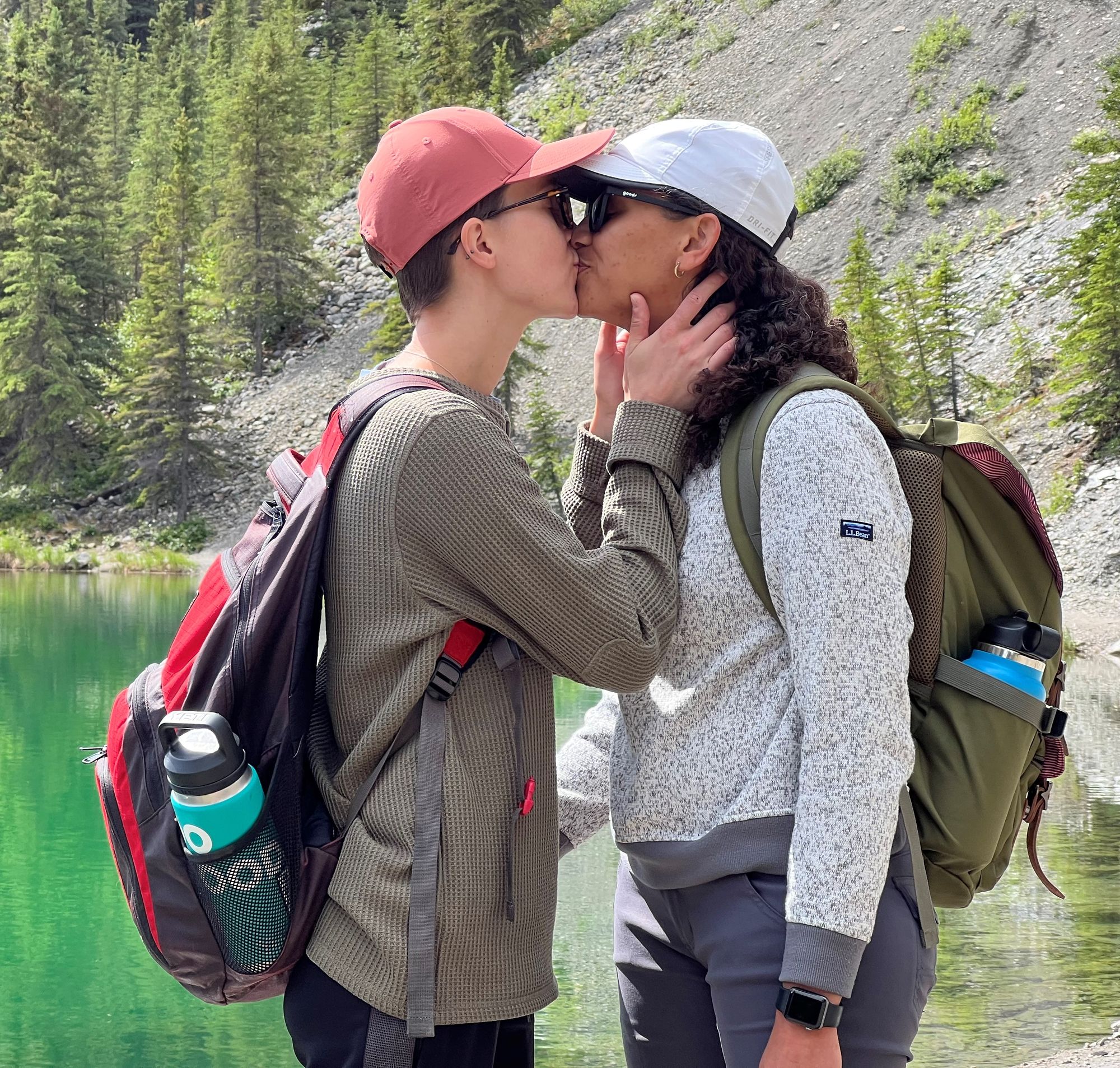
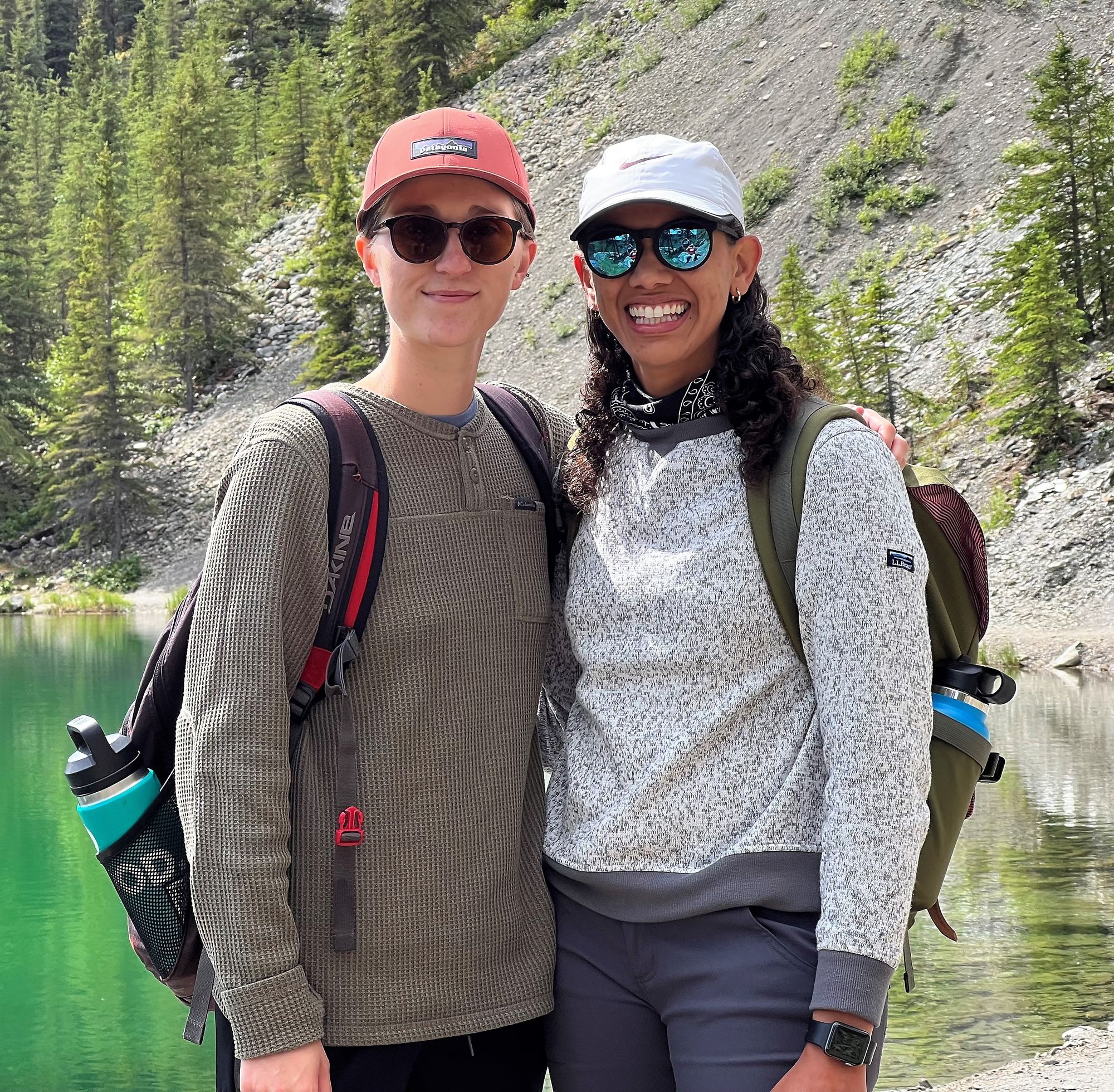
Melinda and I have often thought about them since, but especially following the Dobbs decision in which the Supreme Court’s reactionary majority overturned Roe v. Wade, which in 1973 had established abortion as a constitutionally-protected right.
In his concurring opinion, Justice Clarence Thomas argued that the current court “should consider all of this Court’s substantive due process precedents, including Griswold, Lawrence, and Obergefell.”
In Griswold v. Connecticut (1965), the Supreme Court ruled that states can’t prevent married couples from using contraception; in Lawrence v. Texas (2003), the court legalized same-sex sexual relations, and in Obergefell v. Hodges (2015), the court legalized same-sex marriage.
Because my wife and I support same-sex unions and are pro-choice, the Religious Right and its Republican allies scorn us as enemies of Christian “family values.” (We’re Presbyterians. Smith and Gilbert are Christians, too.)
It’s not just the blatant — dare I say un-Christian? — bigotry of the Religious Right and its GOP enablers that sticks in our craws. It’s also their claims that they are heeding Christ’s very words in declaring homosexuality a sin punishable by perpetual perdition.
I’m not a theologian, far from it. But my wife has more than a nodding acquaintance with the Good Book. Though the Bible includes homophobic passages, she says nowhere in Scripture does Christ say anything about homosexuality. Not one word.
I always defer to my bride on Biblical matters. But I was a reporter before I switched from the newsroom to a community college classroom. I still go by the Two-Source Rule.
So I contacted her Louisville-born Baltimore cousin, a retired Baptist pastor and a Yale Divinity School grad. (He grew up attending Highland Baptist Church.)
He agreed that in the Bible, the Prince of Peace is silent on homosexuality.
Religious Rightists view the Bible literally. They believe all of it is the inerrant word of God and Jesus. So if Jesus didn’t declare homosexuality a sin, how can his mortal followers?
(In ancient, pre-Christian Greek religion, woe betide mortals who went against the gods. If the Olympians found you guilty of “hubris” or excessive pride, you could expect swift and sure punishment from Nemesis, the goddess of vengeance. The Bible warns that “Pride goes before destruction, a haughty spirit before a fall.”)
Elsewhere in the Bible Jesus preaches love over hate, peace over war, charity over greed, and brotherhood and sisterhood over excluding “the other.”
In addition, Jesus admonished, “Do unto others as you’d have others do unto you.” Is condemning LGBTQ folks to everlasting hellfire really in the spirit of The Redeemer who said, “God is love?”
In the Bible, Jesus also makes it plain that we’re all God’s children. If there’s an “except my LGBTQ kids” qualification, please show me where the Almighty says so.
On a secular level, Religious Rightists claim that homosexuality will destroy America. Take it from this septuagenarian who taught history for two dozen years: nations and empires, even great ones, are toppled by well-armed invaders or determined domestic rebels, not LGBTQ folks.
I’ll never forget the serendipity of sharing Smith and Gilbert’s special moment through a cell phone camera lens. Neither will Melinda, who cradled Big Bertha while I snapped away.
The love in their eyes was obvious. It reminded me of a Sunday afternoon in February, 1978, when a 22-year-old college senior agreed to a 29-year-old newspaper reporter’s proposal of marriage and allowed him to slip a special ring on her finger.
Smith and Gilbert might think it would be impossible to love each other more than they do now. We did when we got engaged and got married 10 months later.
But we love each other more now than then.
We hope the same will be true for these young women who invited two senior citizen strangers to record for posterity the “official” start of their life’s journey together. It was way cool.
--30--


